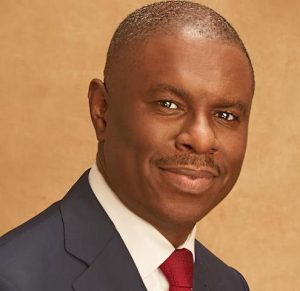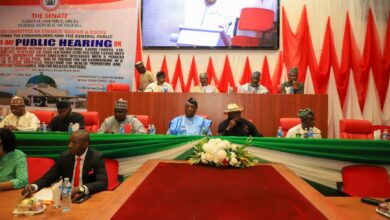

Former Chairman, Association of African Maritime Administrations(AAMA)
By Dakuku Peterside
The appointment of a new leadership team at the Nigerian National Petroleum Company Limited (NNPC Ltd.) has sparked fresh hope. However, history teaches us that leadership changes in Nigeria’s public institutions is often not a guarantee for remarkable positive changes . Each transition is seen as a potential turning point, yet the cycle of inefficiency, corruption and mismanagement persists. This time, however, there is a distinguishing factor—NNPC Ltd. is now led by a technocratic board predominantly composed of industry professionals. This shift signals the possibility of meaningful change, but only if these experts can resist personal and corporate interests and genuinely serve national priorities. Will this be a turning point or another wasted opportunity? The answer will profoundly affect Nigeria’s economic stability and long-term economic health .
As Nigeria’s national oil company, NNPC Ltd. wields significant influence, managing the country’s vast oil and gas resources. Its efficiency, or lack thereof, has far-reaching implications for government funding, economic stability, foreign exchange reserves, currency valuation, job creation, and investor confidence. A well-managed NNPC Ltd. could serve as the backbone of economic revival, while inefficiency could lead to a domino effect of economic crises. The Nigeria Extractive Industries Transparency Initiative (NEITI) reports that the country lost over $46 billion to oil theft and operational inefficiencies between 2009 and 2020, underscoring the potential impact of a well-managed NNPC Ltd.
An ineffective NNPC Ltd. is not just a national disservice —it is an economic crisis in itself. The company’s mismanagement directly impacts the economy and national development projects.
Globally, state-owned oil companies have been instrumental in their nations’ economic development. Saudi Aramco is the most profitable company in the world, surpassing tech giants like Apple and Microsoft, with a net income of $161.1 billion in 2022. Petrobras in Brazil has driven economic expansion through strategic investments and governance reforms, generating $35.7 billion in net profits in the same year. Equinor in Norway used oil revenues to establish a sovereign wealth fund valued at over $1.4 trillion, ensuring long-term economic stability. While these national oil companies fuel economic prosperity in their respective countries, NNPC Ltd. has struggled with inefficiency, corruption, and chronic underperformance. NNPC Ltd. has the potential to match these achievements, but only if it undergoes serious structural and operational reforms.
A technocratic board raises expectations of professionalism and efficiency but also presents risks. Many board members have vested interests in private oil and gas companies, creating a high risk of conflict of interest and policy decisions that serve personal gains over national development. Transparency International has consistently ranked Nigeria’s oil sector among the opaquest in the world, with corruption and vested interests undermining effective governance. To dispel these concerns, the new leadership must demonstrate an unwavering commitment to transparency, accountability, and ethical governance. Key questions must be addressed: Will their private interests precede national interests? Can they implement policies that might negatively impact their business associates? How will transparency and accountability be maintained in the decision-making process? The ability of this leadership team to separate personal gain from national duty will be a defining factor in its success or failure.
Nigeria’s oil production costs, from 2023 data, are among the highest in the world. Saudi Arabia and Iraq produce oil at $10 per barrel, Russia and Norway at $20-$21 per barrel, while Nigeria produces at between $40 and $48 per barrel. Security costs ,burdensome logistics and infrastructure, inflated contracts and fraudulent procurement, and other corrupt practices contribute to these high production costs. The Cable, a Nigerian online publication quoting the National Security Adviser, Nuhu Ribadu, says that the country loses around 400,000 barrels of crude oil daily to theft and sabotage. By improving operational efficiency, adopting cutting edge technology and eliminating corruption, the new leadership could reduce the cost of production to $25-$30 per barrel—leading to a potential 75% increase in oil revenue.
Nigeria has consistently failed to meet its OPEC production quotas due to large-scale oil theft, pipeline vandalism, community conflicts, and inefficiencies in NNPC Ltd.’s operations and management. Strengthening security measures in oil-producing regions, establishing clear community engagement frameworks, and improving operational efficiency through technology and management reforms are critical to addressing these issues. In 2024,the country struggled to produce a daily average of 1.4 million barrels per day , according to data from NUPRC, which is the industry regulator, due to these challenges. A key priority for the new leadership must be to secure and ramp up oil production. Addressing the complicity of some NNPC Ltd. and Nigeria Navy personnel in oil theft will be crucial.
NNPC Ltd. is notorious for delays in making Final Investment Decisions (FID) due to bureaucratic red tape, layers of embedded interests and political interference, and over-reliance on joint venture models where NNPC Ltd. expects international oil companies to finance projects. A prime example is the stalled Brass LNG and Olokola LNG projects. One stakeholder attributed it to the nature of the joint venture model operated by NNPC. He likened it to a woman going to the market with her friend and banking on her friend to pay for both purchases. Here, the NNPC, which is the landlord, plans to be funded by the tenant, the field operator. The challenge is their refusal to comply with section 65 of Petroleum Industry Act (PIA) that has suggested that they migrate from unincorporated joint venture (uJV) to incorporated joint venture ( IJVCL) that will require joint upfront financing of projects at the beginning without the need of structure for ‘carry’ or cash calls”. The new leadership of NNPC must address this inefficiency and recklessness so that Nigeria and Nigerians can benefit from oil and gas resources. The former Minister of State for Petroleum Resources, Timipre Sylva, once described Nigeria’s investment delays as “crippling to sectoral growth.”
Despite spending trillions of Naira on refinery maintenance, Nigeria’s four state-owned refineries remain non-functional.
Between 2000 and 2020, according to House of Representatives investigation committee reports, NNPC spent over $25 billion on refinery repairs without tangible results. By today’s estimate, that money can be used to build 2 new refineries with a capacity of 225,000 bpd. NNNPC has the most inefficient refinery operations and expensive turnaround maintenance costs. The new leadership of NNPC has both a moral obligation and a national duty to make appropriate decisions on what to do with the refineries. Some national oil companies have sold off their refineries to focus on crude oil production and renewables , while others operate their refineries efficiently and generate profits. The key questions are: Should NNPC Ltd sell the refineries to private investors? Or should it reform its operational structures for greater efficiency and adopt a new refinery management model?
For decades, corruption and mismanagement have plagued NNPC Ltd. Political actors have used the company as a cash cow, opaque procurement processes, and delayed and unreliable financial disclosures. It is estimated that one-third of NNPC’s revenue is used to service political commitments that have nothing to do with the national economy. NNPC has attempted publishing its financial report in the past three years since PIB. Stakeholders say it is more of a ceremonial ritual than any serious attempt to be transparent. Unlike its peers, NNPCL does not accompany its audited financial statements with comprehensive operational reports. Being more transparent and professional in NNPC’s management should be a topmost priority of the new leadership. To restore credibility, NNPC Ltd. must publish independently audited financial reports with full operational details, implement transparent procurement policies, establish zero-tolerance measures against corruption, and resist political interference in financial decisions.
Nigeria has 203 trillion cubic feet of natural gas reserves, yet these remain largely untapped due to a lack of critical infrastructure and poor pricing policies that deter investment. How did other nations do it to earn optimally from gas resources? Qatar became the world’s largest LNG exporter, generating over $100 billion annually from gas sales. Trinidad & Tobago built a robust petrochemical industry using gas resources . Norway used gas revenues to develop a $1.4b sovereign wealth fund. These success stories demonstrate the transformative potential of natural gas when it is strategically managed and leveraged for comprehensive national development. Nigeria can draw valuable insights from these experiences to unlock the full potential of gas resources. Investing in gas infrastructure development, reforming pricing policies to attract investors, and developing a clear gas commercialization strategy are essential steps toward unlocking Nigeria’s gas potential. As the International Energy Agency (IEA) points out, “Natural gas can be a bridge to sustainable energy security if managed efficiently.”
To ensure long-term sustainability, NNPC Ltd. must optimize asset utilization, especially in crude oil exploration and refinery operations, prioritize profit-driven decision-making over political interference, and streamline bureaucratic processes to boost efficiency. The company has attempted an Initial Public Offering (IPO) three times between 2018 and 2023, failing each time due to a lack of political will and transparency issues . Listing NNPC Ltd. on a foreign stock exchange such as New York or London could attract investors and strengthen corporate governance, following the examples of Saudi Aramco, Petronas, and Petrobras. Fast-tracking the promised Initial Public Offering (IPO) on major stock exchanges is essential.
NNPC stands at a critical crossroads. With exemplary leadership and reforms, Nigeria’s economy can be transformed, global investment can be attracted, and the potential of its vast oil and gas resources can be maximized. However, if these necessary reforms are not implemented, history will repeat itself, and Nigeria will continue to suffer from inefficiencies and corruption. “Nigeria’s oil sector has the potential to be the backbone of our economy,” admitted Mele Kyari, immediate past Group CEO of NNPC Ltd., “but only if we make the hard decisions now.” The responsibility now lies with the new leadership: Will they seize this opportunity or squander it like their predecessors? Will this new leadership deliver, or will history repeat itself? That NNPC needs a serious course correction is no brainer. The coming on board of a new leadership is the right time to do a reset. The choices made today will define Nigeria’s economic trajectory for decades.











gp3tpt
o59i2s
i47k83
dnps4m
jzszln
ry4dbx